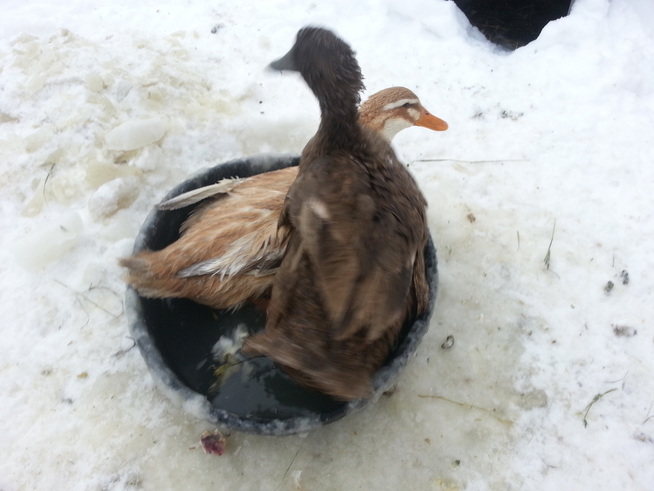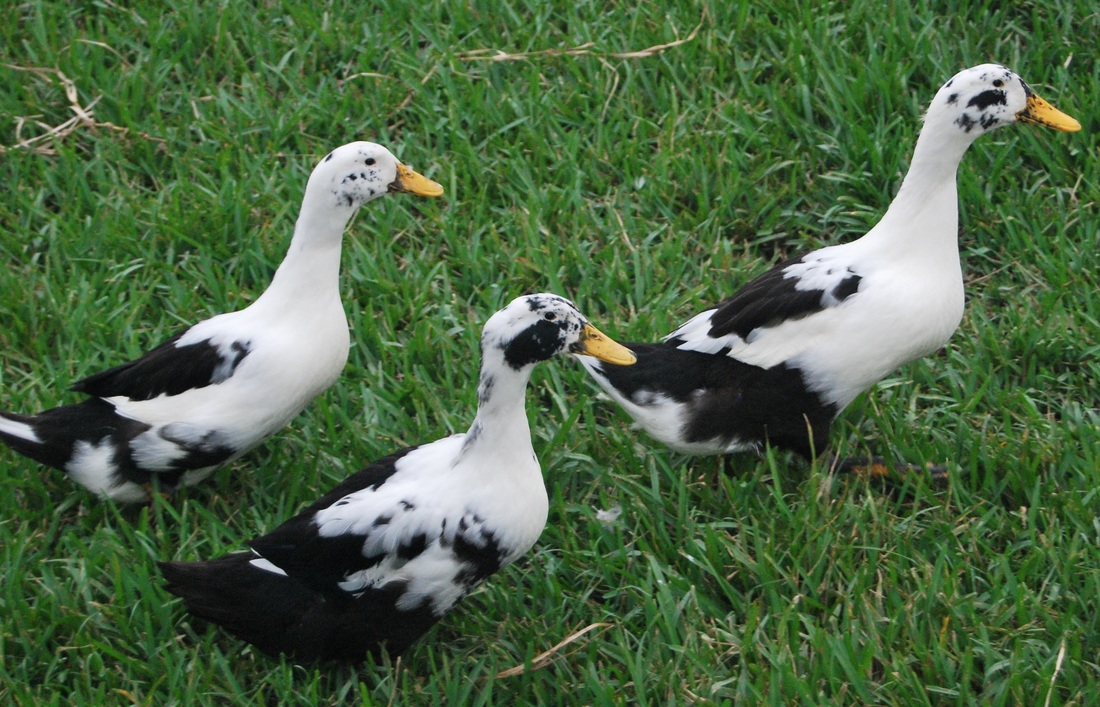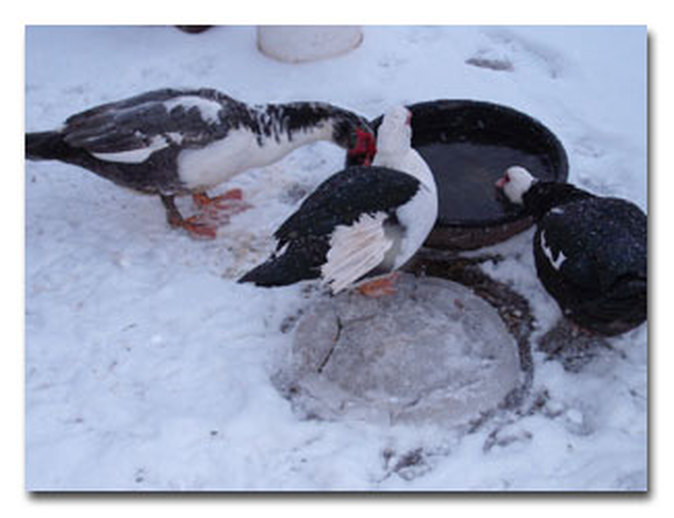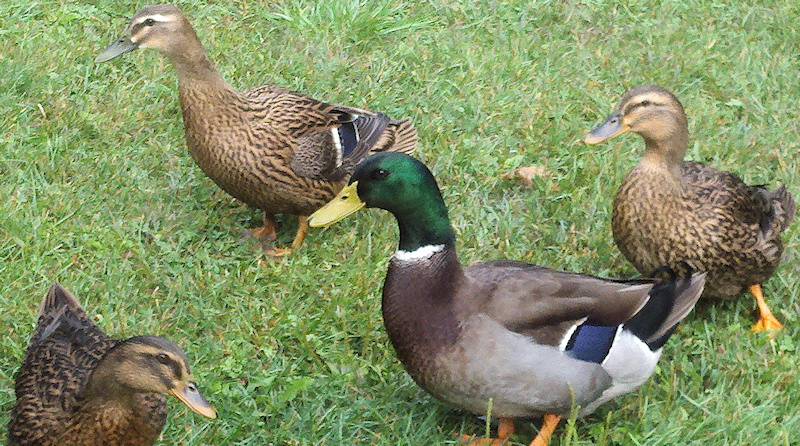 A Saxony hen on the left and Khaki Campbell on the right vying for the hot tub.
A Saxony hen on the left and Khaki Campbell on the right vying for the hot tub. The Fat Ewe Farm has some interesting rare breeds of ducks. Of 11 ducklings purchased in the summer, only one female Ancona remains. The Ancona is a black and white duck, somewhat flighty and crazy, but absolutely the best foraging duck on the farm. I would like to try a few Runner ducks, one of the breeds from which the Ancona was derived to compare their foraging abilities, but more so, I would like to find a mate for the Ancona duck and see if I can raise some of these amazing little critters.
There are three Saxony ducks but no drake there either. The Saxony is a pretty buff coloured duck with buff and white eye stripes. They lay eggs well from early spring to very late fall and are larger than many duck breeds, so make a nice table duck. I am searching for a non related Saxony drake for the spring.
The Rouen is coloured as the wild Mallard from which it is derived, though it is a very large duck. They lay a great deal of eggs and are good at feeding themselves if given the opportunity. There are three ducks and drake of the Rouen breed.
Khaki Campbell ducks were my first experience with waterfowl and I really loved them. They are crazy skitterish and will fall all over themselves to get away from me, but when I am not moving towards them, they will also come and see what I have and run all over my feet. They detest being picked up and so far, I have not tamed a single one. The second year, a duck got injured and was secluded. She nested and hatched 8 babies, and that is rare for Khaki Campbells. Maybe the secret is to sequester them away so they desire to set the nest rather than run and play. The Campbells were bred to lay eggs, and that they do extremely well.
There are some other ducks living at The Fat Ewe Farm, but they are crosses from the ducks here, mostly Rouen, Campbell crosses and only the females are here, about five of them. I would love to try the Dutch Hookbill, Blue Swedish, and Aylesbury, the finest table duck ever bred, along with some Runner ducks. That will be a project for the summer, to try to locate pairs of these.
Oh yeah, there are also four Muscovy ducks. These are large flighted ducks from South America originally, well, not these particular ones, but the breed is. They do not quack or make noise, but rather make a funny sound like a person with harsh laryngitis. They do not like the cold and do not far as well as the ducks descended from the Mallards, which is basically the rest of the ducks. There are three ducks and one summer baby that appears to be male. Muscovy ducks are constantly broody even at the sake of their own health. Last summer one duck spent three months under buildings trying to hatch ducklings. Finally, I tore up the nest and threw the eggs away, which were long overdue and bad, and she was locked up with the rest of the ducks. Muscovies will hatch the eggs of any duck or chicken though, so they are very valuable that way, plus they are supposedly tasty with very dark meat, but I have not eaten one.
Duck eggs are three times more nutritious than chicken eggs and when they are plentiful, I won't touch the chicken eggs. They just do not compare. The ducks are fed minimal grain in the summer and have the run of the farm yard to eat grass, which they a lot of, dandelions, their favourites and bugs, flies and even the odd young mouse of vole. I am looking into alternatives for not feeding grain to the birds at the Fat Ewe , but I am not sure yet how that will work. In the meantime, I love those duckies! They put a smile on my face every time.




 RSS Feed
RSS Feed